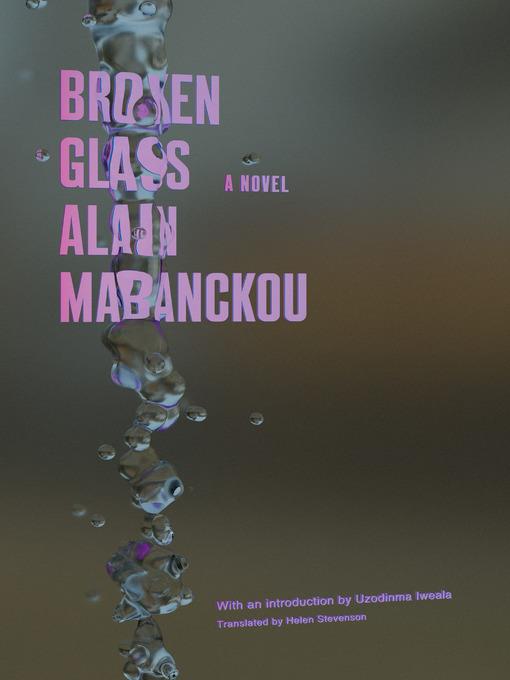
Broken Glass
A Novel
کتاب های مرتبط
- اطلاعات
- نقد و بررسی
- دیدگاه کاربران
نقد و بررسی

Starred review from April 5, 2010
Set in a sad-sack Congolese bar called Credit Gone West, this ingeniously satirical novel by Congolese poet and novelist Mabanckou (African Psycho
) creates a microcosm of postcolonial African experience through the tales of sodden bar patrons. Broken Glass, a 64-year-old former teacher who renounced a conventional life for the drinking life, jots down his and others' stories in a notebook given to him by the bar's owner, Stubborn Snail, because “the days when grandmothers reminisced from their deathbeds was gone now.” Broken Glass endures ribald tales by unsavory regulars such as Pampers, a frequenter of the sex district who lands in jail, only to be sexually abused by the inmates. Another fixture, Printer, recounts the convoluted tale of his travels in France, where he married a gorgeous white woman, moved to a Paris suburb “well away from negroes,” and then discovered his wife was sleeping with his visiting son. Mabanckou moves fluidly from story to story, stringing sentences together without periods and settling into a pleasing prose rhythm. Literary allusions (Holden Caulfield has a cameo) and gentle ironies punctuate this wickedly entertaining novel.

April 15, 2010
The award-winning African author (African Psycho, 2007) returns with a novel about Africa and the West.
The eponymous hero is a former teacher. He's also the official historian of Credit Gone West, the shabby Congo bar where he spends his days downing red wine and recording stories in the notebook given to him by the bar's owner. This novel is, among other things, an idiosyncratic and raucously impertinent tour of the Western canon, with a particular emphasis on French literature (the subject Mabanckou now teaches at UCLA). The unreliable narrator is, of course, a venerable figure in European and American fiction, especially of the postmodern sort, and the kind of literary brinksmanship that results in a novel that's constructed entirely from very long run-on sentences is also familiar. But such devices feel both fresh and necessary here. The Republic of the Congo—not to be confused with its neighbor, the Democratic Republic of the Congo—is, itself, a sort of postmodern state, a rather perilous assemblage cobbled out of a Bantu past and French colonialism, and shaped by civil war and political corruption. It's also worth noting that, unlike many authors who might be called experimental, Mabanckou is funny, and his Rabelaisian riffs are a brilliant counterpoint to the real despair and dysfunction he depicts.
Important, entertaining and subtly moving.
(COPYRIGHT (2010) KIRKUS REVIEWS/NIELSEN BUSINESS MEDIA, INC. ALL RIGHTS RESERVED.)

June 1, 2010
A man known as Broken Glass is a regular in Credit Gone West, a run-down bar in the Congo; the bars owner, aka the Stubborn Snail, selects him to record the stories of the bars other sodden, down-and-out habitu's. That slight premise is all Mabanckou needs to spin a raucous tale of the regulars, the bar, corrupt and inept government, and life in Trois-Cents, an impoverished district of an unnamed city. The regulars stories, and Broken Glass own story, are all self-serving explanations of their failed lives, by turns tragic, funny, and sometimes spectacularly vulgar. Mabanckous prose suggests the drunken ramblings of men who think theyre virtuous and unique, perhaps even fantastic. Literary allusions lace these ramblings. But it is the authors sense of humorand he can find humor in even the most tragic or vulgar circumstancesthat makes Broken Glass a memorable and successful novel.(Reprinted with permission of Booklist, copyright 2010, American Library Association.)

























دیدگاه کاربران